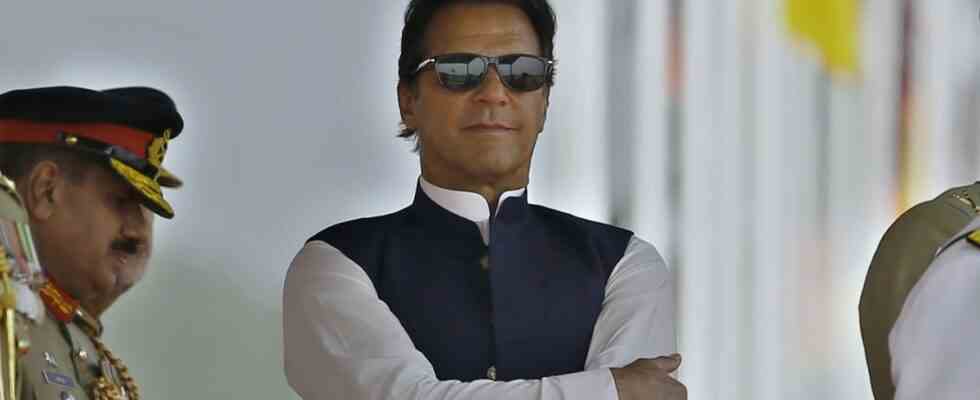It was a showdown without a winner that played out in Islamabad on Sunday. The National Assembly had been convened to vote on whether Imran Khan, 69, ex-cricket world star, ex-playboy and recently prime minister of Pakistan, should be removed from office.
The opposition submitted a motion of no confidence on March 8th. In the days that followed, there was a lot of activity in political Islamabad as parties and individuals changed their alliances. The opposition needed the support of at least 172 of the 342 MPs to oust the prime minister through a vote of no confidence. She ended up with 174.
So the votes would probably have been enough, but shortly after the opening of the session, the deputy speaker of the National Assembly, Qasim Khan Suri, surprisingly rejected the motion of no confidence and described it as a violation of article five of the constitution, which states that loyalty to the state is the fundamental is the duty of every citizen in Pakistan. “No foreign power may conspire to overthrow an elected government,” Suri said.
Prime Minister rails against ‘foreign conspiracy’
In front of tens of thousands of supporters who waved flags with his party’s red and green logo in Islamabad on Sunday, Imran Khan railed against the “foreign conspiracy” to overthrow his government. His supporters had traveled from across the country and flocked to the capital to show their support, like Pakistani magazine The Dawn reported. “Funds are being funneled into Pakistan from abroad to bring about a change of government,” Khan announced to the cheering crowd.
In a televised speech on Thursday, Khan said: “America threatened me.” Observers suspect that this is a diversionary maneuver. Many of those who elected him in 2018 were young, middle-class, urban voters weary of rampant corruption and dynastic politics. Khan had promised them to end corruption within 90 days and create ten million jobs – but then made little move.
In the opposition, Khan had railed against the oversized role of the military in public life. For decades the country was run by the military, and Khan’s election victory was only the second transition from one democratically elected government to another. But Khan’s rise to power has been attributed to the influence of political clans and military support. The question now is whether he still has the support of the generals.
Khan paid a visit to Putin – on the first day after the war began
The Pakistani economy is stuck in a debt crisis. Rising energy costs, which are currently throwing Sri Lanka into chaos, and supply bottlenecks caused by the pandemic were added to this. Khan’s government applied for a rescue package from the International Monetary Fund too late. For this he visited Vladimir Putin as the first state guest – on the first day after the start of the war against Ukraine.
Minister of State for Information and Broadcasting Farrukh Habib told the National Assembly that new elections would be held within 90 days. The opposition leader described the developments as “nothing less than high treason”.
The prime minister, meanwhile, gave a speech to the people in which he spoke of letting the electorate decide his fate. “Prepare for the elections. Corrupt forces shouldn’t decide what the future of the country will look like.” Khan is seen as a campaign politician who can motivate his supporters like he used to captain the national cricket team with which he won the “Cricket World Cup” almost exactly 30 years ago.

